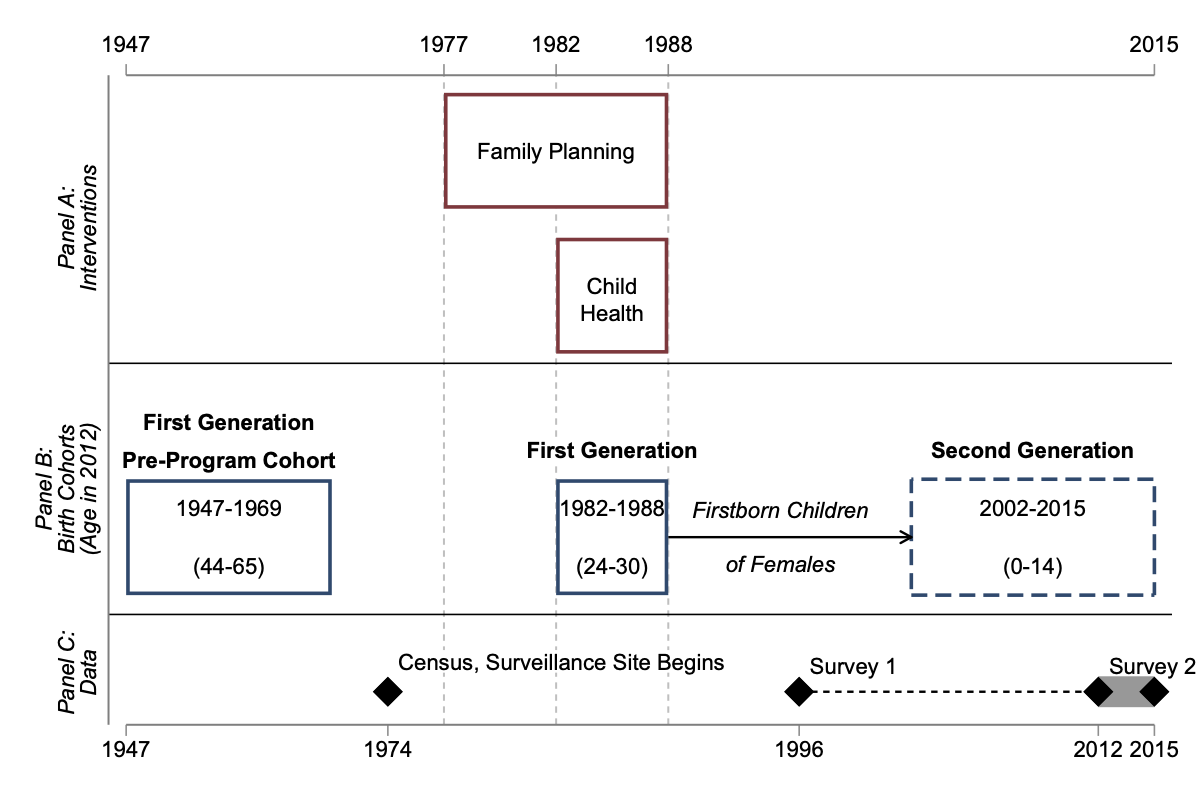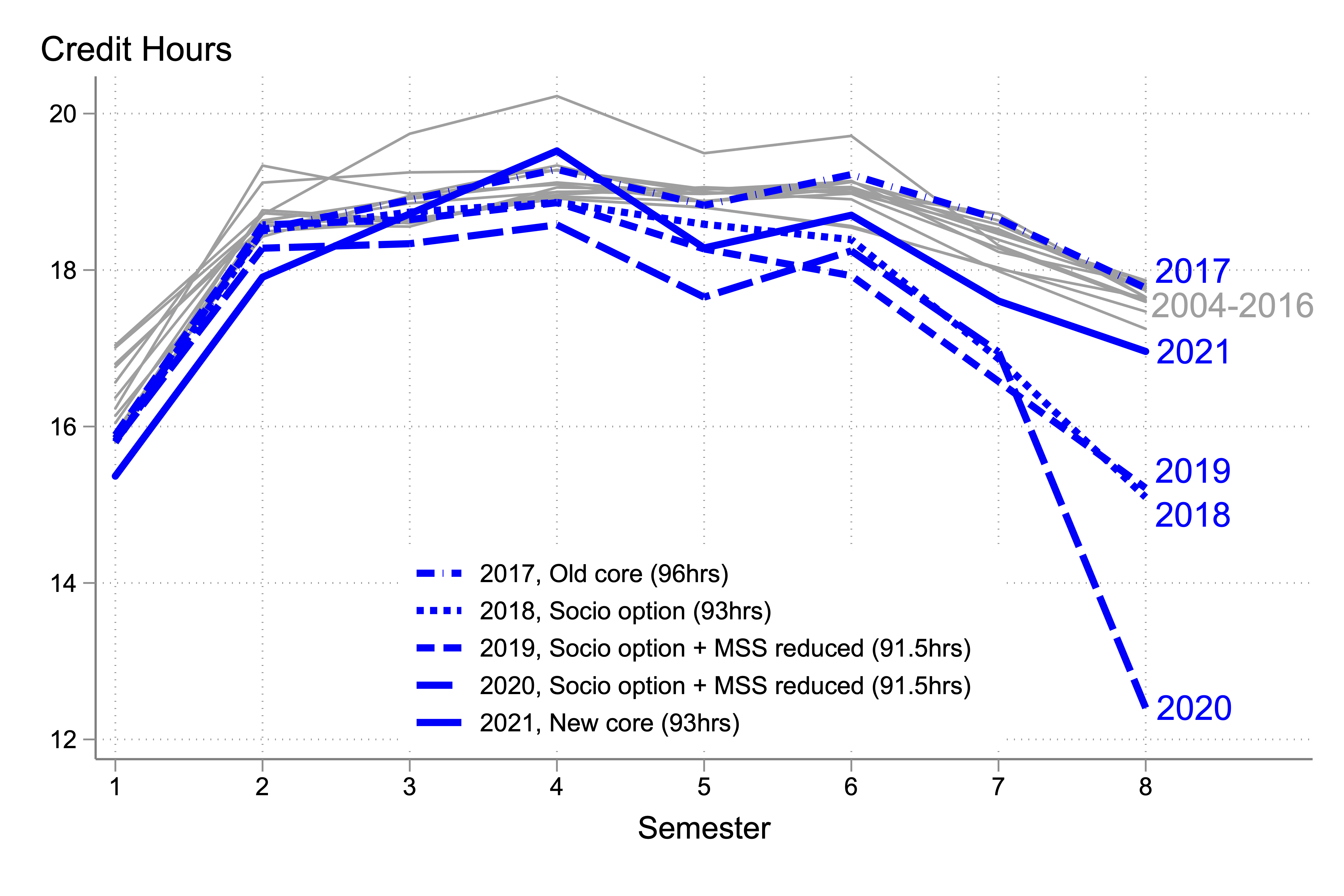Publications
Working Papers
Abstract:
We demonstrate that improving the early childhood health environment has long-term and intergenerational effects on human capital with important distributional effects in Bangladesh. Adults who were eligible as children for health promoting interventions exhibit increased height, reduced short stature, and achieved higher levels of educational attainment. Findings are largest for individuals with the lowest pre-program health endowment, reducing inequality in human capital. Intergenerational effects reveal daughters experienced increased height, reduced stunting, and improved cognitive functioning. These effects are correlated with mother's income generation activities. Failing to consider these distributional and intergenerational effects leads to underinvestment in children.
Abstract:
The time costs of academic credits are poorly measured due to limited data and endogenous course enrollment. We estimate the effect of additional credits on leisure using campus departure logs linked to academic records of U.S. Air Force Academy students and two natural experiments. Leveraging pre-assigned course schedules, each credit reduces leisure by 7 hours per semester, while unexpected changes to graduation requirements reduced leisure by 17 hours per credit. Foregone leisure accounts for 17-50% of time costs imposed by a modal 3-credit course. Academic, athletic, and military performance decline, indicating students struggle to absorb heavier course loads.
Abstract:
Career choice is an important determinant of earnings, non-wage benefits, and many other lifestyle features, but the determinants of that choice are not well understood. This paper leverages administrative data on United States Air Force Academy graduates to estimate the effect of occupational wages on career field preferences. Students commission into the United States Air Force and earn mostly similar wages despite working in a wide variety of different fields. After leaving military service, however, these fields offer very different opportunities in the civilian workforce. We find students are more likely to prefer Air Force career fields when similar civilian career fields offer higher wages. This provides unique evidence on the importance of wages on career field choices for college graduates, and the potential importance of wage information for helping college graduates find better career field matches.
Abstract:
Child marriage has declined yet remains prevalent, especially in low- and middle-income countries. We show this practice is perpetuated in part by intergenerational transmission. Using mother's age of menarche as an instrument for child marriage, having a child married mother increases the likelihood her daughter is also child married by 15 percentage points. Economic stress rather than gender norms likely explains the mechanism for transmission.

